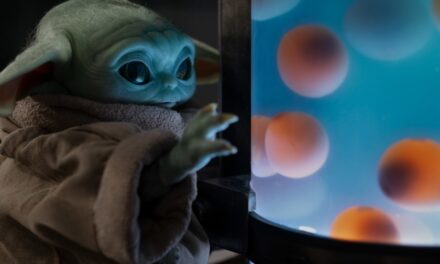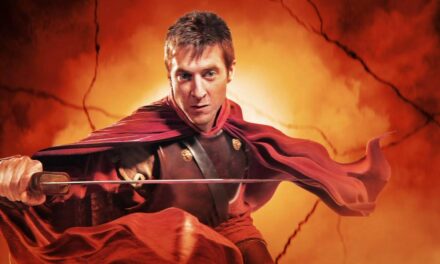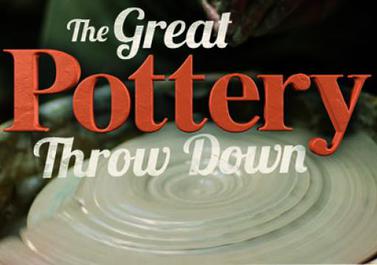A ‘Billy Fluff’ is a moment in Doctor Who from 1963 to 1966 when William Hartnell, the lead actor playing the Doctor, ‘fluffs’ or blows one of his lines. Some are legendary, including ‘anti-radiation gloves’ and ‘cinders floating about in Spain’.
But a collection of them on YouTube is only six minutes long. Given that Hartnell appeared for three years and the show ran nearly all year in that time, that is not actually a great deal of dialogue. Nor are all of them in the YouTube collection actual ‘fluffed’ lines. His declaration ‘this is a madhouse, it’s all full of Arabs’ may not be politically correct, but it is not garbled either.
One issue with the Billy Fluffs is that pointing them out could be tasteless, given suggestions his health was declining, as suggested on the fan site The TARDIS Data Core. Another is that the notion of the ‘Billy Fluff’ trivialises Hartnell and brings a highly professional actor’s professionalism into question.
I’m far from being the first to call out the notion of the Billy Fluff. A column by the ‘Watcher’ in Doctor Who Magazine some years ago pointed instead to his immense ability to perform before the cameras and other commentators point out the focus on them is unfair.
But chances are that people who have seen a Hartnell episode might not have seen any other example of an early 1960s drama production made in the same circumstances. Once viewed in context, there seems even less reason to single out a fluffed line as a ‘Billy Fluff’.

It’s revealing to compare the Hartnell era with a contemporary program made in similar circumstances. The Cathy Gale era of The Avengers lasted from 1962 to 1964. Although made by ITV, like Hartnell-era Doctor Who it was made in an electronic studio in a multi camera set up with limited ability to retake scenes. Honor Blackman’s Mrs Gale is a mesmerising and brilliant character, but without doubt Blackman fluffs her lines. In fairness, Blackman was also having to concentrate on getting her real judo throws to work in one take and doing them on the studio floor without hurting herself and her co-stars. Other actors also fare quite badly when trying to remember their dialogue. In one especially memorable moment in ‘The Little Wonders’ the Canadian actress (and Miss Moneypenny) Lois Maxwell blows a line so badly she breaks character and clenches her fist in genuine frustration. In another episode character actor Guy Doleman professes love for Cathy but gets her name wrong. In another the actor playing a character who is dead opens his eyes just as the camera goes into close up on his face. “In the bottom desk of the drawer is a bunch of keys…” says one character in ‘Brief for Murder’.
One person who doesn’t have trouble in The Avengers is Patrick Macnee, playing the lead John Steed. But unlike other cast members (and indeed unlike Hartnell), Macnee had immense technical and production experience behind the camera. Watching him in the black and white episodes, it is clear how adroitly he manages to cope with the challenges of ‘live’ recording. For example the set of Mrs Gale’s flat was fitted with high tech features like ‘automatic’ doors, surely a disaster waiting to happen in a studio recording the action as live. But not for Macnee, who seems to improvise the shouted line ‘open sesame’, as he approaches a door and alerting the studio assistant behind it to get ready to open the ‘automatic’ door. In such ways, he kept the action going in circumstances of production and recording that would make latter-day actors and technicians weep.
Doors opening and shutting (or not) on cue brings us back to Doctor Who, to William Hartnell, and to the present day. The 2013 drama An Adventure in Space and Time reconstructed the experience of making Doctor Who during Hartnell’s tenure. The attention to detail was immaculate. David Bradley played Hartnell in a far more accurate recreation of the First Doctor’s costume than seen in either The Three Doctors (1972) or The Five Doctors (1983). Original props from fifty years before were pulled out of storage for reuse as were Marconi cameras, and 1960s cast members William Russell, Carole Ann Ford and Mark Eden appeared in cameos.

But this meticulous reconstruction tipped somehow over into a type of hyper version of the past on the question of Hartnell’s ability to remember his lines, as it does in other areas too. Jarringly for a program that celebrated 50 years of Doctor Who and generally showed Hartnell in positive terms, the ‘Billy Fluffs’ took on disproportionate importance in scenes recreating the show’s production. At the rehearsal for the first episode An Unearthly Child Hartnell swears in frustration when he gets a line wrong. In another he is shown making a blooper shouting ‘fornicator’ instead of fault locater. Hartnell remonstrates with a director to be given less dialogue, insisting he can convey it all with a look. He loses the plot in the studio, is rude to extras when trying to remember his lines, and the characters Mervyn Pinfield and Sydney Newman fret during a meeting that Hartnell’s lines have been so bad. Finally Hartnell appears in Newman’s office suggesting he make up his own dialogue. Whenever Bradley is shown in action as Hartnell playing Doctor Who, he is blowing his lines. The impression is reinforced in the reconstruction of the recording of the pilot episode. The two surviving takes of the actual pilot episode show the first take had some technical issues, including the TARDIS doors not shutting on cue. But the reconstruction in An Adventure in Space and Time really goes to town. The doors slam and clatter, the silhouettes of technicians appear, sprinklers drench the set, a camera hovers in shot and the composition of the shots goes to pieces. Not only Hartnell but the whole team look ridiculous. But the actual pilot tells a different story. In the second take the cast are word perfect, and Waris Hussein’s direction is immaculate.
It’s not clear if An Adventure in Space and Time was attempting to show the difficulty of making television in the 1960s and asking for some sympathy, but ultimately there should be other ways to celebrate Hartnell. Try watching or listening to one of his later stories from season three where there’s not a fluff to be heard or try another 1960s show where the actors do their absolute best in impossible conditions to get their dialogue right.
Dr Marcus Harmes lectures at the University of Southern Queensland, Toowoomba, Australia. He has authored books including Doctor Who and the Art of Adaptation (2014) and the entry in the Devil’s Advocates series on The Curse of Frankenstein.





